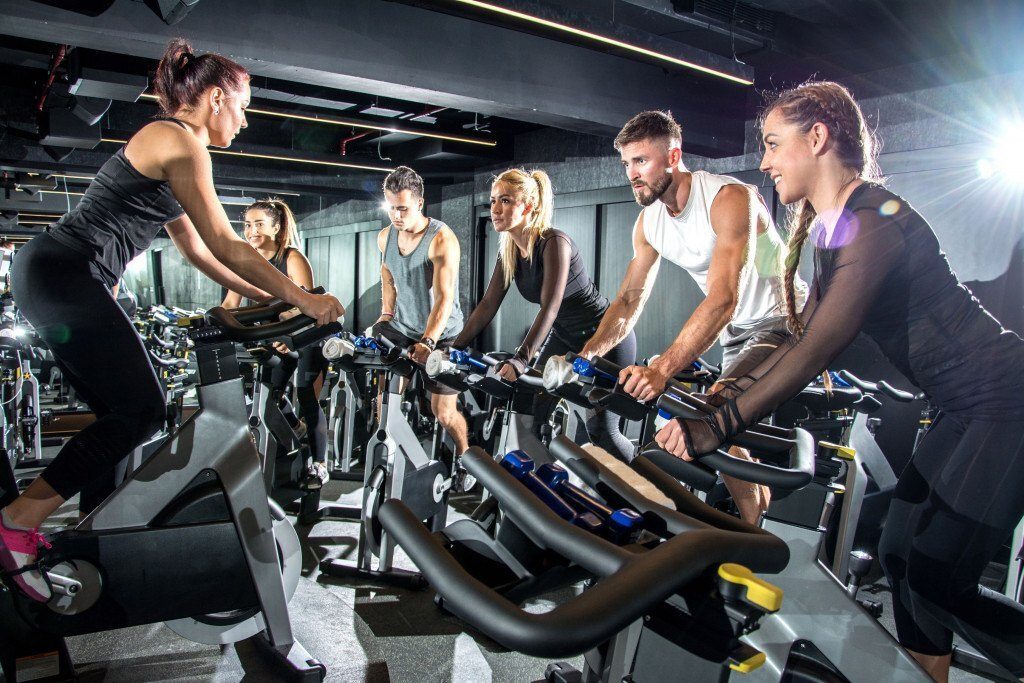On Saturday it was announced that a number of positive COVID cases were for recorded amongst members of one of Qatar’s known fitness centres. OxFitness Lab posted that it had been made aware that some of its customers and staff had tested positive for the virus, creating a state of panic amongst the fitness community especially for those who have been to the gym in recent days.
The day before, members took to social media to warn others regarding the spread of cases. According to several people, the gym allegedly had suspected a few cases back on Wednesday but continued with classes. It was only on Thursday that they announced the cancellation of sessions but without providing any specific reason.
Ox fitness lab has positive cases, I’m going to get tested and I strongly suggest whoever works out there to get tested ASAP (especially beatbox and ride tribe) Spread the word, and stay safe xxxxxx
— منى (@muunnnnaa) September 4, 2020
One member, Yara (an alias), who tested positive told Doha News that the gym called her on Thursday to inform her that her class was canceled, ‘because a coach had a family emergency’.
“They then called me again on Friday to tell me to get tested,” she says.
Yara got tested prior to the call on Friday as she experienced symptoms, such as fatigue and a congested throat. She is now quarantining at home for the next two weeks, like many others.
On Saturday evening, OxFitness Lab finally released a statement, saying that the gym will be closed for the next two weeks citing the detection of COVID positive cases as the reason.

Doha News reached out to OxFitness Lab for a statement regarding the matter. They insist that the gym has been vigilant and has been abiding by the safety precautions per the Ministry of Public Health (MoPH). However, the disease’s ability to spread amongst individuals goes beyond one’s hand.
“As a community space with hundreds of members, despite temperature & Ehteraz checks, we cannot control the whereabouts and interaction of every individual outside our space,” OxFitness Lab.
The gym is now working closely with the MoPH to ensure the safety of all members and staff. They have also made arrangements for members to get tested.
But OxFitness is not the only gym where coronavirus cases have been recorded.
On Sunday, F45, another popular gym in Doha, announced the presence of positive cases amongst its members. In their email, they urged their community to get tested. As a result, the gym reduced the number of rotations in stations and altered its schedules but stopped short of closing its doors.
But where does the issue lie?
Despite the varying sizes of gyms, several members say that these establishments did stick to the appropriate safety measures, leaving the question of whether or not the spaciousness of rooms plays a role in the spread of the disease.
“I think every gym has to assess their own physical space and how they organise it,” says Dr. Shahrad Taheri, Professor of Medicine, Assistant Dean for Clinical Investigations, and Director of the Clinical Research Core at Weill Cornell Medicine — Qatar.
When we spoke to members of OxFitness Lab, they mentioned that they believed some people were already carrying the disease from outside and only found out when they were tested later in the week.
“I feel like it’s not their fault this happened to them [members] and that people got corona through oX, but I feel like they should’ve called every person who was at the classes,” a member of OxFitness Lab who tested negative told Doha News.
But in a spinning class like ‘Ride Tribe’, up to 25 people (half the initial capacity of 50) are able to join in an enclosed space without wearing a mask.

Last month Doha News asked “are workout spaces opening too soon?”
Some of the people we spoke to believed that there should not have been a blanket approval for fitness centres to reopen; rather that authorities should have judged on a case by case basis taking into consideration space as well as the nature of the activity.
Whether it is from being too close to others or attending large gatherings, the disease has the ability to creep into one’s system without showing symptoms.
According to a study conducted by Professor Baruch Fischhoff at Carnegie Mellon University, viral exposure to the disease depends on three factors: concentration, time and distance.
So if this is the case, what would happen if the room contains people with the disease? And what can gyms do about it?
“The gym can only do so much. So the people that attend the gym should follow the rules,” says Dr. Taheri. “Social distancing is the key, there are many gyms around the world that are open without any problems,” he says.
See also: Are Workout Spaces Opening Too Soon?
Stigma and COVID-19
Although gyms urged their members to get tested, many refuse to do so.
Like many previous pandemics, COVID-19 also has the burden of the stigma attached to it. Stigma, which is mainly the result of misinformation, is a social isolator that can create judgements around the people diagnosed.
“It’s necessary for public health to educate people about how they need to react to positive tests,” says Dr. Taheri “It’s better to get tested and know if you’ve been exposed, because it’s much easier to deal with it or treat it,” he says.
Since COVID-19 is still present, without an accessible vaccine and as people try to adjust to what many describe as “the new normal”, people are still trying to reintegrate into social activities, especially sports.
And while cases continue, the responsibility of individuals for their health and towards others remains.
“It’s a huge responsibility. Just like how I wouldn’t want someone to spread it [COVID] to me, I wouldn’t want to be spreading it around,” says Yara.
Do you think gyms should be closed again?







